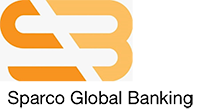Revolutionizing the Global Commodity Market with Blockchain: The Power of Transparency and Efficiency
In the ever-evolving landscape of global trade, the commodity market plays a pivotal role. Commodity trading involves the exchange of essential raw materials such as agricultural products, energy resources, metals, and more. Traditionally, this market has been plagued by challenges related to transparency, inefficiency, and counterparty risks. However, the advent of blockchain technology has opened up a realm of possibilities, offering a transformative solution for the global commodity market. In this write-up, we explore the concept of a global commodity platform built on blockchain and highlight its potential to revolutionize the industry.
The Power of Blockchain Technology:
Blockchain, often synonymous with transparency and security, is a decentralized and immutable ledger technology. It enables the secure recording, storage, and verification of transactions across a network of computers, eliminating the need for intermediaries. These properties make blockchain an ideal technology for disrupting the global commodity market, where trust, provenance, and efficiency are of utmost importance.
Enhanced Transparency and Traceability:
One of the key advantages of a blockchain-based commodity platform is the enhanced transparency it provides. Each transaction related to the production, transportation, and sale of commodities can be recorded on the blockchain, creating an immutable and transparent audit trail. This transparency ensures that all stakeholders have access to accurate and real-time information regarding the origin, quality, and ownership of the commodities. By reducing information asymmetry, blockchain technology empowers buyers and sellers to make informed decisions, mitigating the risks associated with counterfeit products, fraud, and market manipulation.
Efficient Supply Chain Management:
Blockchain facilitates the seamless tracking of commodities throughout the supply chain. Smart contracts, programmable self-executing agreements, can be integrated into the platform, automating various processes such as quality inspections, compliance checks, and payments. These smart contracts eliminate the need for intermediaries, reducing administrative costs and streamlining the trading process. Additionally, blockchain enables real-time monitoring of inventory levels, ensuring efficient inventory management and reducing the risk of supply chain disruptions.
Risk Mitigation and Secure Transactions:
Counterparty risks are inherent in commodity trading, but blockchain technology can help mitigate these risks. By leveraging blockchain's decentralized and cryptographic properties, the platform ensures the integrity and immutability of transaction data. The use of digital tokens or cryptocurrencies as a medium of exchange on the platform can further enhance security and reduce the risk of fraud. Smart contracts can also be utilized to automate compliance checks, ensuring adherence to regulations and minimizing legal risks.
Global Market Access and Liquidity:
A blockchain-based commodity platform has the potential to connect buyers and sellers from around the world, fostering a truly global market. By removing geographical barriers and reducing transaction costs, the platform enables small-scale producers to access larger markets, promoting inclusivity and fair trade. The increased market liquidity provided by the platform enhances price discovery, facilitating more efficient and competitive pricing mechanisms.
The global commodity market stands to benefit significantly from the adoption of blockchain technology. By leveraging the power of transparency, efficiency, and security, a blockchain-based commodity platform can revolutionize the industry. Enhanced transparency and traceability, efficient supply chain management, risk mitigation, and increased market access are just a few of the advantages offered by such a platform. As blockchain continues to mature and gain wider acceptance, the global commodity market is poised for a transformative shift, empowering stakeholders and fostering a more efficient and sustainable trading ecosystem.
